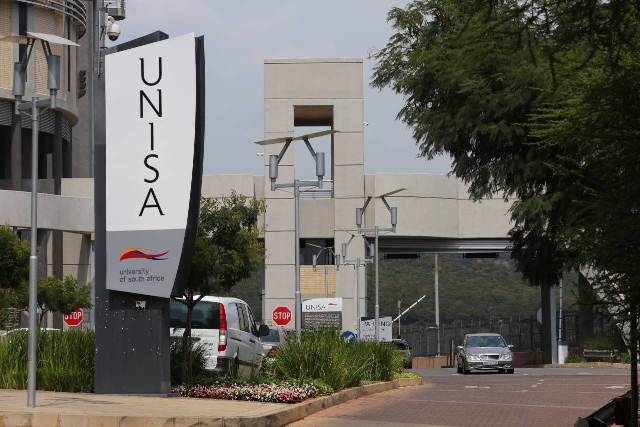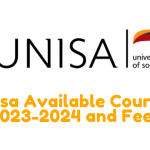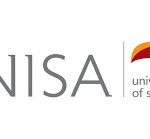A Comprehensive Guide on How to Upload Documents at UNISA The goal of the application…
Step-By-Step Guide On How To Calculate Your APS At UNISA

Step-By-Step Guide On How To Calculate Your APS At UNISA
The APS system at UNISA is a fresh take on gauging students’ performance in the classroom.
It’s a computerized programme that evaluates students’ academic performance and provides suggestions for improvement. Because of the system’s efficiency and user-friendliness, students will be able to track their progress and get immediate feedback in real-time.
UNISA’s APS programme ensures that all students have access to a rigorous curriculum and the customised attention they need to reach their full potential as students.
The APS system at UNISA, including how to calculate your APS score at UNISA, the range of potential APS scores, and other confidential matters, are all discussed in this article.
How does Unisa Calculate the APS?
Admission Point Score (APS) at Unisa
The Admission Point Score (APS) at Unisa is used to evaluate a prospective student’s academic performance in high school.
Put your best foot forward; it’s a required section of the application!
To determine if an applicant should be admitted to a course, the APS score considers their performance in specific disciplines. In addition to English, the applicant must take four required disciplines and one elective.
The APS is used to assess if prospective students at Unisa meet the basic standards for admission.
A good APS score increases your chances of being accepted to Unisa, thus it’s worth working hard to achieve. If you’re applying to a programme or course that requires a certain GPA or APS score, then you’ll want to make sure you have one.
It’s a great way to set yourself apart from the competition. Your admissions prospects at Unisa improve with a higher APS score. If you want into the major of your choice at the university, you’d best do well on the entrance exam because admittance is based on merit.
UNISA’s APS Calculation Guide
Are you intrigued by the UNISA APS formula? What follows is essential information. Using the information in the table and the instructions, you may begin figuring out your UNISA APS. You must submit a list of your top six subjects to UNISA, which must include any required courses for your chosen major.
Grading and Calculation
Use UNISA’s APS chart to determine grades. While an A in English (Home Language) is worth 7 points, a C in Mathematics is only worth 4. We grade each topic from 1-7. Each subject’s final grade might be anywhere from 0% to 100%. Grading scale: 1-7, with 7 being the highest possible and 1 the lowest. You can get a point score based on your Math grades. A score of 45%, for instance, would translate to a 3. You can calculate your overall point total by adding the average point values from your top five or six courses.
APS Calculation Table
The formula for determining an Admissions Point Score (APS) at UNISA (University of South Africa) is as follows:

Is Lo’s APS score factored in at Unisa?
The academic performance of a student is evaluated using the UNISA APS technique.
If a student has a GPA over this threshold, they will be considered for admission to a four-year university.
There are several moving components to the APS system, including National Senior Certificate scores, the option to forego traditional high school graduation, and other prerequisites.
All South African students are still required to take Lo.
However, Lo scores are ignored when the APS is calculated.
Therefore, Lo scores are disregarded while calculating the UNISA APS grade. Although Life Orientation (Lo) is a required subject in South African classrooms, it does not factor into a student’s APS (Admission Point Score) when applying to UNISA.
With a 15 on the APS, which majors are available at Unisa?
Both acceptance to and choice of major at UNISA are heavily influenced by APS.
To guarantee admission to UNISA and you’re preferred major/minor, a high APS score is essential.
A low APS can make it difficult for a candidate to gain admission to UNISA. If your APS is 15 or higher, you can apply to enrol in any Higher Certificate programme. You might enrol in an ICB or NATED programme, or get your Higher Certificate from a university.
A minimum APS score of 15 is required for admission to UNISA in the disciplines of Education, Social Science, and Arts & Culture. This amount of time would get you a Bachelor of Arts in Communication Science or a Bachelor of Education in Foundation Phase Teaching.
How low can an APS get?
Minimum APS (Admission Point Score) requirements to enrol in a certain programme at South African universities and UNISA change from school to school and major to major.
However, many colleges and universities, like UNISA, require at least an APS 18 in order to admit students.
As my APS is quite low, what subjects should I focus on?
UNISA is a fantastic school with a wide variety of programmes available. You may discover a programme that works for you in just about any academic discipline.
Don’t stress if your admissions score is lower than average.
You still have time to locate a programme that is a good fit for your needs. It is well-known that the vast majority of accessible courses for applicants with low APS scores are advanced certificates.
The following is a list of courses that can be taken at UNISA with a relatively low APS.
Diploma in Accounting Sciences
Diploma in Human Resource Management
Higher Certificate in Banking Services
Higher Certificate in Business Management
Higher Certificate in Economic and Management Sciences
Higher Certificate in Human Resource Management
Higher Certificate in Law
Higher Certificate in Marketing
Higher Certificate in Public Administration and Management
Higher Certificate in Tourism Management
Is your low APS causing you concern? Stressed out about deciding which college to attend? If you don’t have a high Admission Point Score (APS), gaining admission to a postsecondary institution in South Africa is still achievable. Prospective students’ chances of being admitted to a university vary depending on a number of factors, including the competitiveness of the programme they are applying to, the number of available spots, and the university’s admission procedures. Try to maintain a positive outlook if you find yourself in this group. You might be able to enrol in a programme at a prestigious college or university. You may still be accepted to some schools; this will depend on the specifics of your intended major, the number of slots available, and the total number of applicants. Don’t give up on your desire of going to college before giving this a fair shot.



